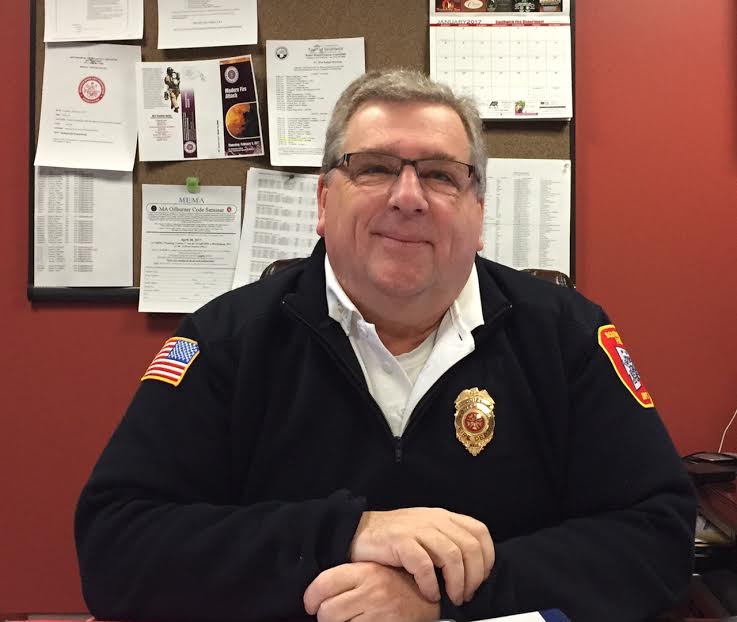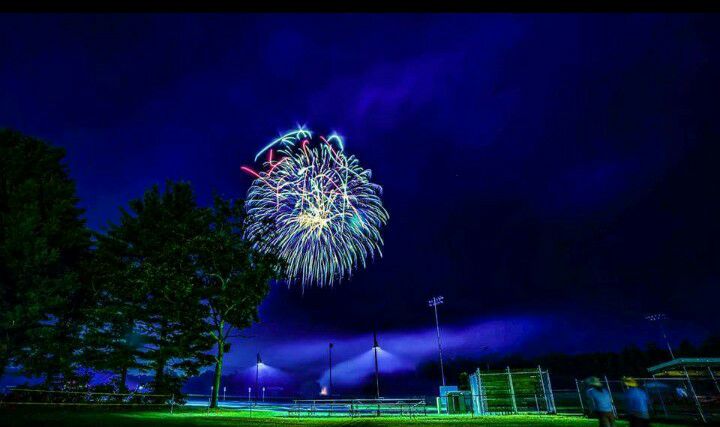BOSTON – While fireworks are illegal in the Commonwealth unless fired by professionals, two bills before the Public Safety and Homeland Security Committee would let Massachusetts residents set off sparklers.
Last week, the committee heard testimony on bills (S 1615, H 2476) from Millbury Democrat Sen. Michael Moore and Ipswich Republican Rep. Brad Hill that would remove novelty sparklers from the list of fireworks banned under state law.
Testimony was also heard from Michael Winn, president of the Fire Chiefs Association of Massachusetts and chief of the Centerville-Osterville-Marston Mills department. Winn vehemently expressed his opposition.
“As fire chiefs, we see the results and injuries related to firework accidents,” he said. “In 2019, sparklers were the leading cause of firework injuries to children younger than 5, according to the Consumer Product Safety Commission. Need we say more?”
Southwick Fire Chief Russ Anderson, who serves as the District 11 representative to the Fire Chiefs Association of Massachusetts – which includes Westfield – also said he opposes the bills.
“While we haven’t had a recent call, in the past we have responded to structure fires that were started from fireworks landing in the grass around homes or on roofs then spreading to the home,” said Anderson.
He specifically noted that sparklers may be pretty, but they are dangerous.
“With sparklers burning at over 2,000 degrees, it goes without saying I don’t think parents would want their kids to purposely play with other fire devices nor should we advocate for sparklers,” Anderson said.
According to Anderson, the National Fire Protection Agency reported $105 million in direct property damage in 2018, a year in which about 19,500 fires started by fireworks were reported to local fire departments across the country.
“Last year 15,000 people were treated in hospital emergency rooms across the country due to fireworks, a 50% increase in death and injuries from fireworks — 17% caused by sparklers,” he said.
Possession and use of all fireworks — including sparklers, party poppers and firecrackers – by private citizens is illegal in Massachusetts, and it is also illegal to transport fireworks into the state if purchased elsewhere.
“Illegal possession or use of fireworks is punishable by a fine of $10 to $100, while selling fireworks in Massachusetts risks a fine between $100 and $1,000 and up to a year in prison. The law also calls for law enforcement officers to seize any illicit fireworks,” wrote State House News reporter Katie Lannan, who noted that bills to legalize sparklers have been filed for years on Beacon Hill. The Public Safety Committee last session endorsed a version of Moore’s bill in June 2020, and it died in the Senate Rules Committee.
In a July 2 press release reminding people that fireworks are illegal, the state Department of Fire Services said that a lit sparkler “burns at a temperature hot enough to melt glass.”
Representing an industry group called the United States Fireworks Safety Commission, Eric Turner said that Washington, D.C., Puerto Rico and 49 states — all but Massachusetts — allow sale and use of sparklers, according to State House News.
“Fireworks are as much of a part of the Fourth of July celebration as family picnics, parades and apple pie, and even though fireworks have been illegal in Massachusetts for many years, Massachusetts citizens regularly purchase from neighboring states or a southern state on the way back from Florida or by mail order over the internet or from bootleggers,” Turner said. “This creates major problems for enforcement officials.”
He said that legalizing sparklers could benefit Bay State retailers, generate an estimated $2.5 million to $3 million in sales tax revenue, and discourage the purchase of larger fireworks from out of state.
Rep. Steven Xiarhos, a retired Yarmouth police officer, said his former department fielded fireworks complaints “all the time” and asked Turner how lawmakers should square his testimony with the comments from the fire chiefs.
Turner said his group has “a good working relationship” with fire officials in various states.
“Not one state has come back and said we need to change this and reverse this,” he said. “The commitment we make, we’re not trying to get a nose under the tent and come back in a year or two and say, ‘Well, you know, we want these exploding type of product,'” Lannan wrote. “We’re very comfortable in this mid-range type of product, non-explosive, non-aerial, that allows people to celebrate safely. Connecticut is the classic example — we passed a bill in 2000 and we’ve never been back to try to expand it.”





